MATH 4400: Evaluating Websites
Evaluating Online Resources
Finding Reliable Web Resources

“The Internet is the first thing that humanity has built that humanity doesn't understand, the largest experiment in anarchy that we have ever had.” Eric Schmidt, Executive Chairman & CEO of Alphabet Inc.
The Internet can be a very helpful tool when writing a paper or article. However, since everyone has access to publishing content on the Internet you need to use it with caution. Using the 5 criteria for evaluating online resources, this guide will teach you to accurately evaluate online information before citing it as a source.
Criteria for Assessing the Quality of Information
Scholars and librarians have come up with guidelines to judge the quality of information sources, and these general recommendations apply to websites, blogs and any general web resource.
1. Accuracy
2. Authority
3. Objectivity
4. Currency
5. Coverage
Taken from Teaching undergrads WEB evaluation: A guide for library instruction by Jim Kapoun, C&RL News, Jul/Aug 1998, 522-3.

ACCURACY
A high quality website source contains accurate information that can be verified by other sources. The information should be free of spelling, grammar, and punctuation mistakes. There should be evidence of an editor or fact checker who is responsible for making sure that the information is correct.
Quick Notes:
- Who wrote the page and can you contact him/her?
- What is the purpose of the document and why was it produced?
- Is this person qualified to write this document?
Make sure the author provides email or other contact information.
Know the distinction between author and webmaster.

AUTHORITY
It should be clear who the author is and what credentials he/she has. If the author is an expert or has higher credentials, the information is more likely to be useful. There should be an email address listed or other contact information. If the page is anonymous, there is no one to hold accountable for erroneous information.
Pay attention to where the document was published. Information published at .edu, .org, or .gov sites is usually preferred to information from .com sites since it was most likely published by a school or organization rather than a business.
Find out who sponsored the website and who the advertisers are. The credibility of the sponsor may reveal something about the quality of the information presented.
Quick Notes:
- Who published the document and is it separate from the webmaster?
- Check the domain of the document: what institution published it?
- Does the publisher list his or her qualifications?
What credentials are listed for the author?
Where is the document published? Check the URL domain. Be wary of .com sites.

OBJECTIVITY
An objective source will contain more quality information than a heavily biased source. When viewing a website, notice any explicit or implied biases. If the page is an advertisement or endorsement, there may be financial motivations to provide biased information. The advertising should be clearly differentiated from the informational content of the site. It should be clear why the site was created and for whom.
Quick Notes:
- What goals/objectives does this page meet?
- How detailed is the information?
- What opinions (if any) are expressed by the author?
View any web page as you would an infomercial on TV. Ask yourself why it was written and for whom.
Determine if the page is a mask for advertising; if so, the information may be biased.

CURRENCY
The accuracy of an information source is often influenced by how recently it was created. For topics such as technology, science, and medicine it is especially important to have current information. To avoid outdated information, find out when the page was created and how often it is updated. Look for the date of the last revision. Check the links -- often older websites have links that have expired or whose targets have moved.
Quick Notes:
- When was it produced? Or updated?
- How up-to-date are the links (if any)?

COVERAGE
It is important to consider the level of information coverage a website contains. The purpose and scope of the website should be specific and well defined. The most useful websites cover a variety of topics and/or cover a topic in-depth. A site index, site map, or FAQ should be provided to help navigate the site and give the user some idea of the extent of the site's coverage. A quality website is highly interactive and will offer users services and information not found elsewhere. It is important that information be cited correctly and permission and/or licensing be obtained for the use of copyrighted images and multimedia materials. The information should be free of charge.
Quick Notes:
- Are the links evaluated? Do they complement the document’s theme?
- Is the site all images, or a balance of text and images?
- Is the information present cited correctly?
- Is the information free? Or is there a fee?
Lets test what you've learned.
Examine each web resource using the 5 criteria for evaluating webpages. Can you tell which resources are authentic. have fun.